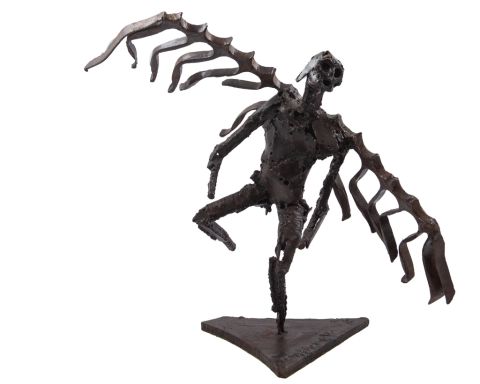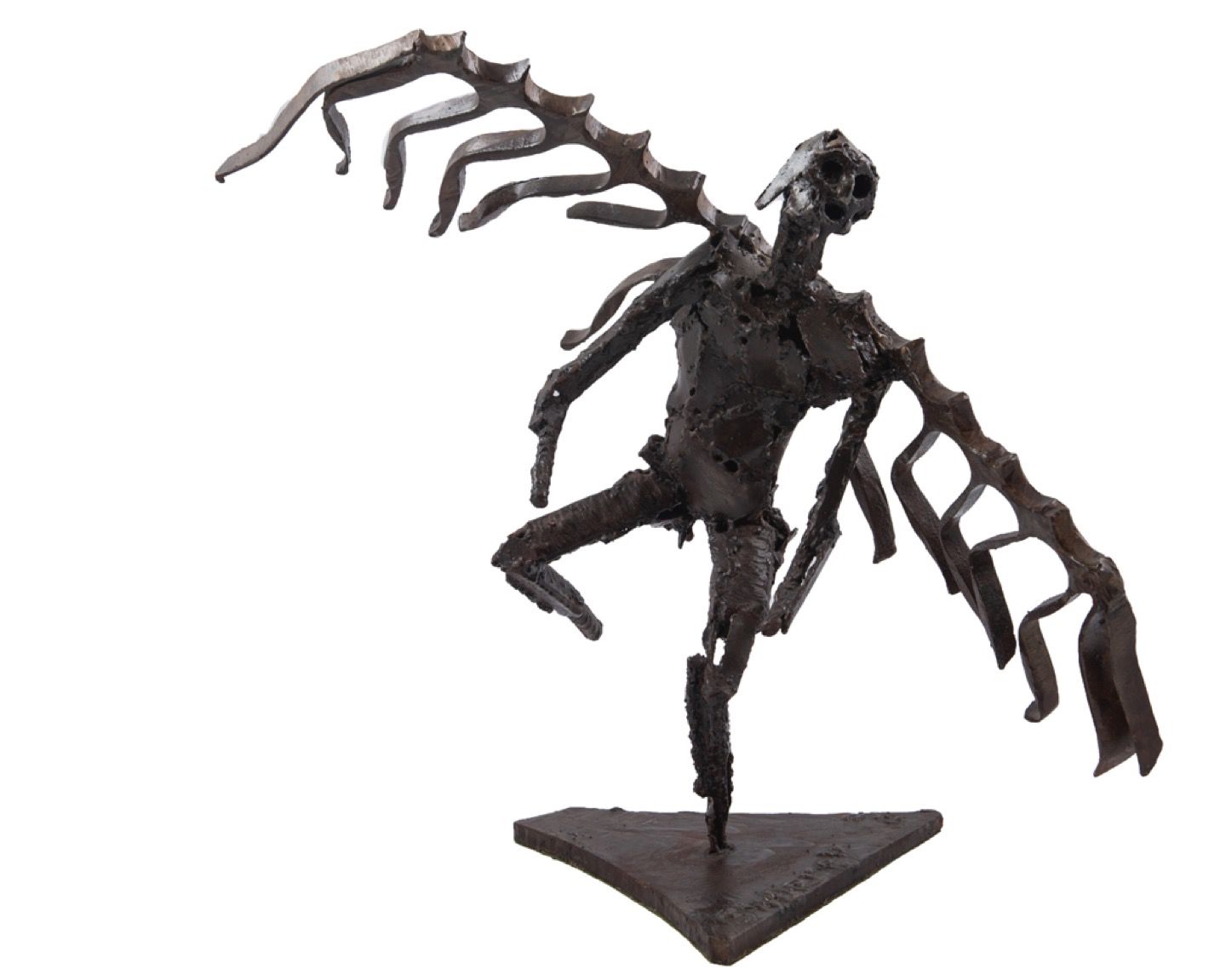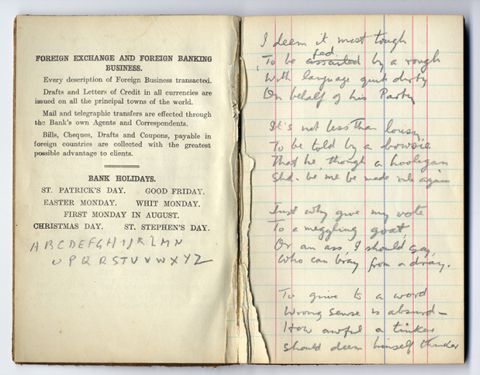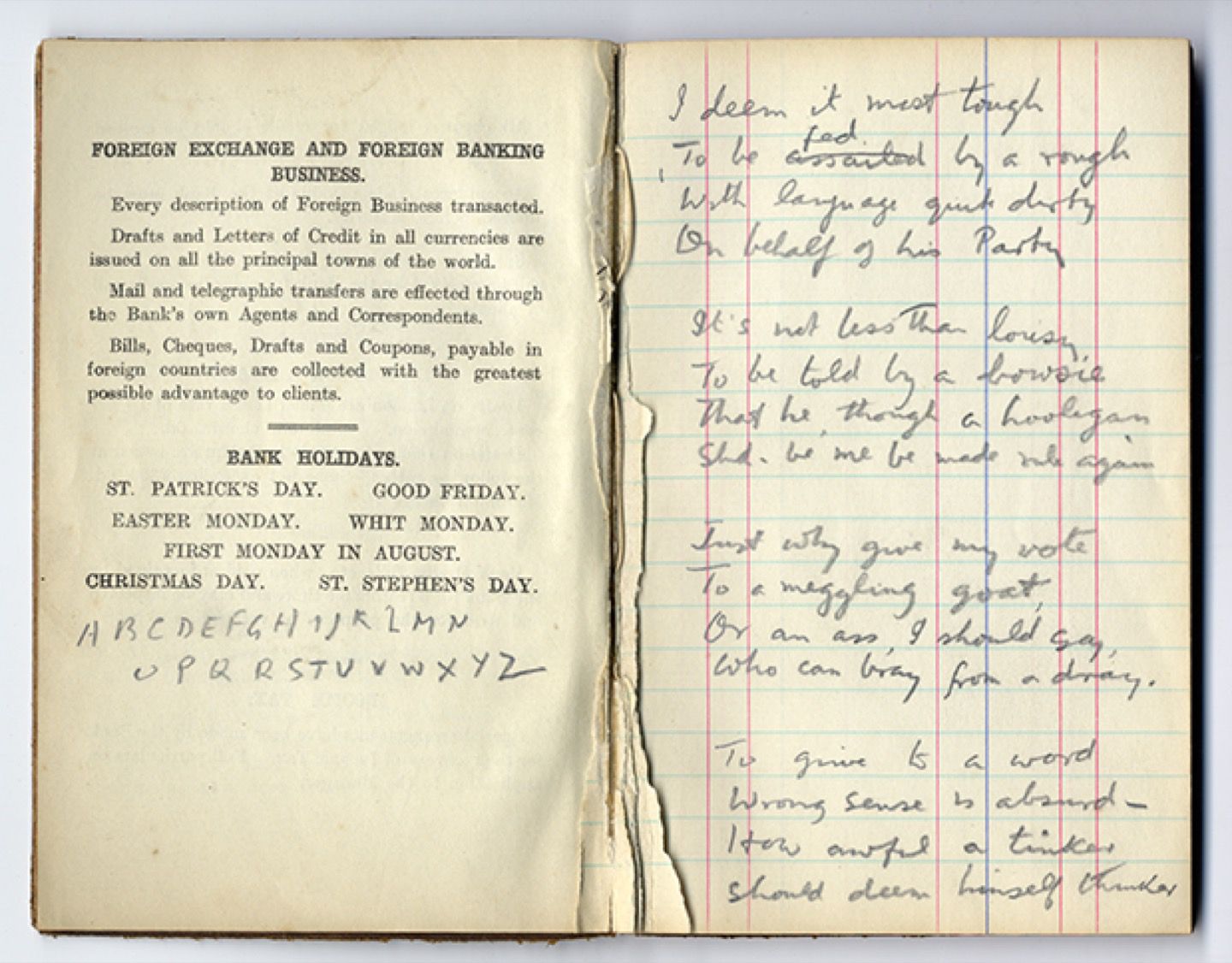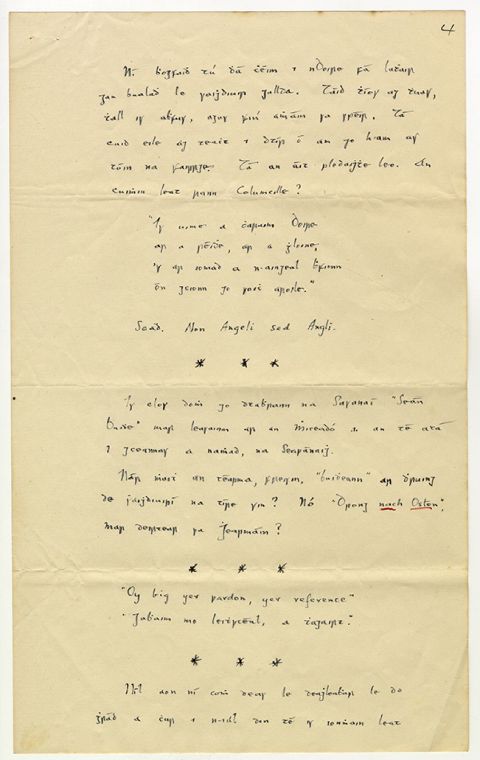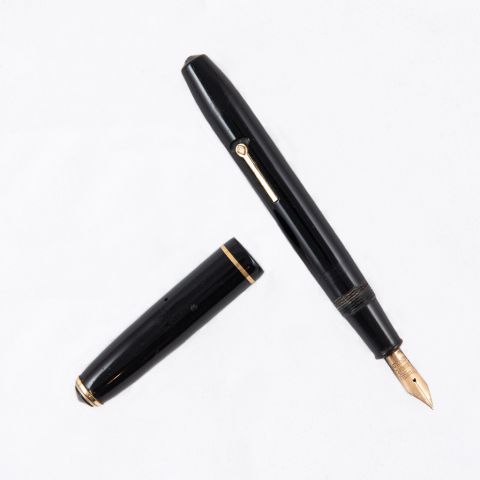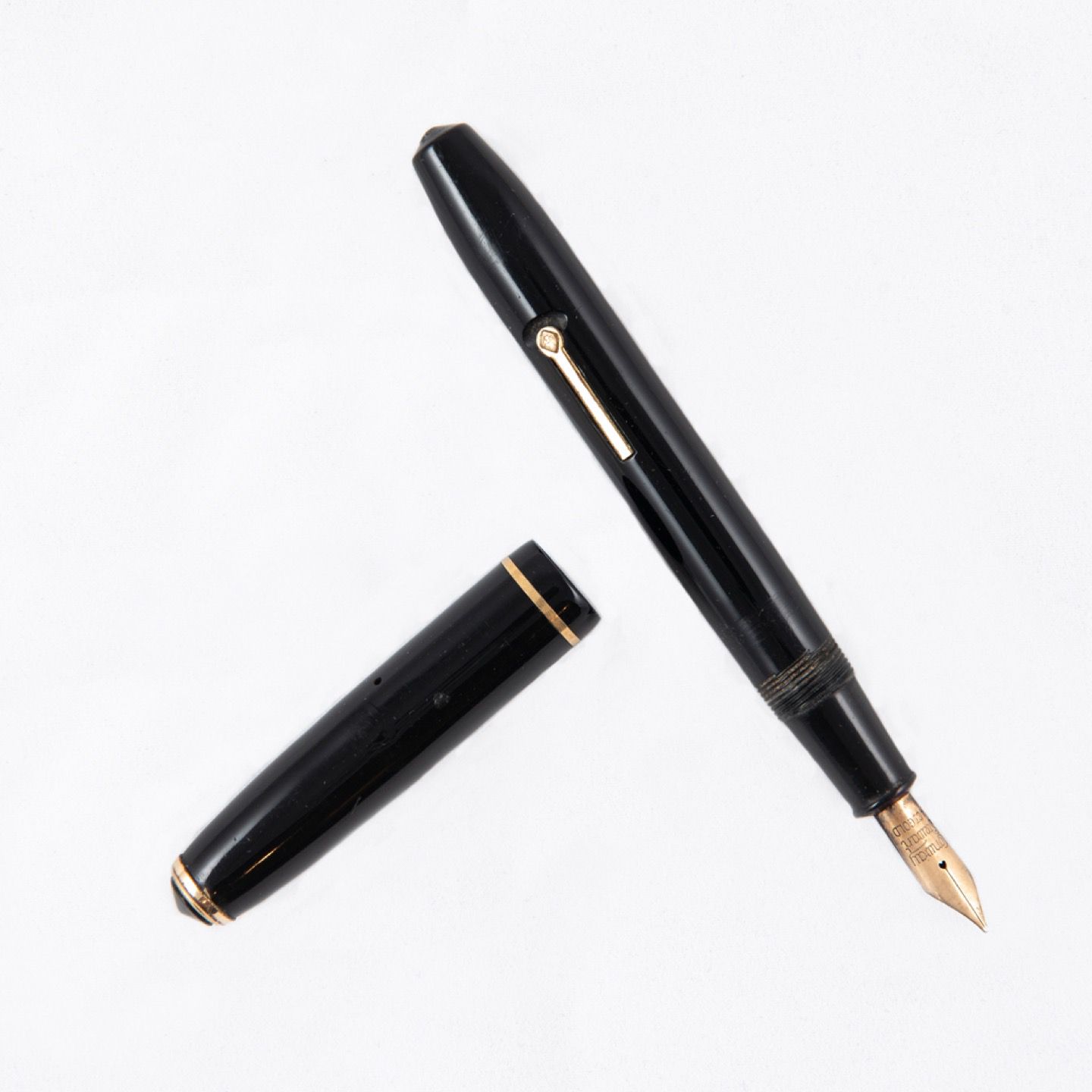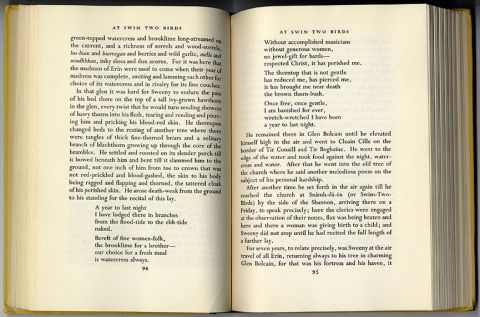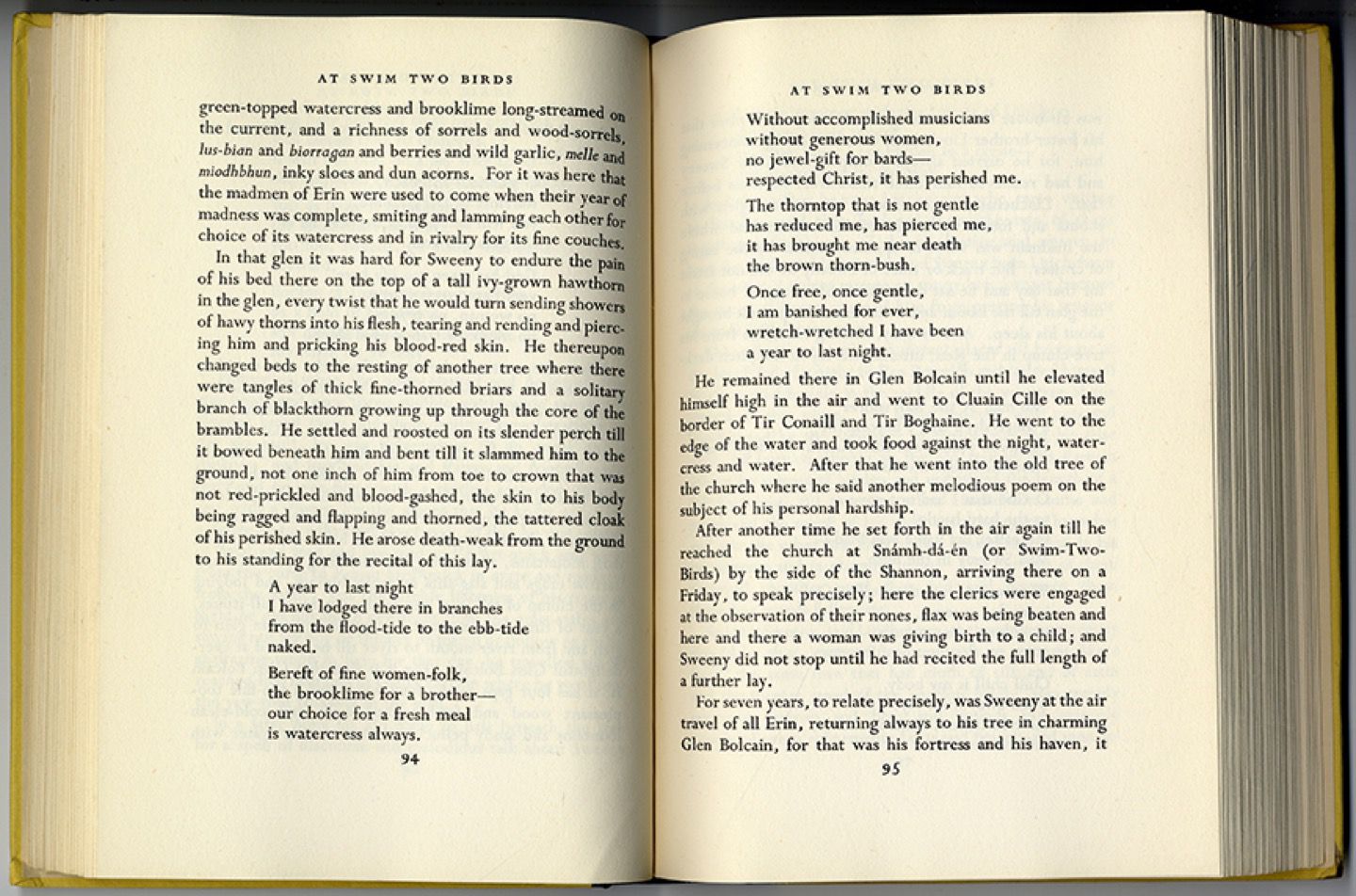Poetry
Poetic Beginnings
According to his brother Ciarán, “Brian did no creative writing until he was in his last year in Blackrock College. Even then the extent of his output was a few short poems.”
One hardly thinks of O’Nolan or his alter egos Flann O’Brien and Myles na Gopaleen as poets, but so it was in the beginning with each, for each embedded bits of original verse and occasionally whole poems in their novels, dramas, and columns.
In a 1939 essay titled “When Fiction Lives in Fiction,” the avant-garde Argentine author Jorge Luis Borges described Flann’s first novel, At Swim-Two-Birds, as “not only a labyrinth” but “a discussion of the many ways to conceive of the Irish novel and a repertory of exercises in prose and verse which illustrate or parody all the styles of Ireland.”
For the Bards
O’Nolan never published a poem as such, much less collections of poetry like William Butler Yeats and other Irish literary revivalists and modernist writers. Yet he did dabble in the genre, if only for amusement or for the opportunities it gave him to parody traditions of versifying.
O’Nolan’s archives preserve unpublished poetic fragments, such as bits of doggerel jotted in the pages of a banking passbook. A draft of one of his “Cruiskeen Lawn” columns for The Irish Times includes a quatrain he composed in Irish about St. Columcille (or Columba), the 6th-century bardic poet and apostle descended from ancient Celtic kings.
In his novel At Swim-Two-Birds, O’Nolan, writing as Flann O’Brien, has the legendarily mad king Sweeney (or Sweeny) recite mournful lays about the misfortune of being cursed to flit about Ireland as a bird, perching atop trees.
Another section of At Swim-Two-Birds contains Flann’s famous pub poem, “Workman’s Friend,” which celebrates the emblematic pint of plain porter (think Guinness), and his praise for the “Plain People of Ireland,” whom he will alternately champion and chastise in the “Cruiskeen Lawn” under the guise of Myles na Gopaleen.
In one of the columns selected for the Best of Myles compilation, O’Nolan chastises poetry itself, contending sardonically that it bears “no excuse,” for it “gives no adequate return in money.”

